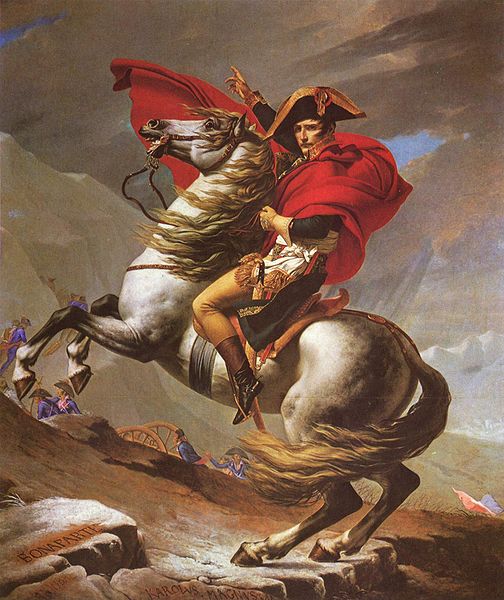The Napoleonic Wars, spanning from 1803 to 1815, were a series of conflicts that reshaped the political and social landscape of Europe.
This article delves into the intricacies of these wars, exploring their causes, major battles, key players, and far-reaching consequences.
I. The Prelude to War
Before the Napoleonic Wars erupted, Europe was already in a state of tension. The French Revolution of 1789 had led to radical political changes in France, which culminated in the rise of Napoleon Bonaparte to power in 1799. His ambition and military prowess set the stage for a new era of conflict.
II. The Coalition Wars
The first phase of the Napoleonic Wars, known as the Coalition Wars (1803-1807), witnessed the formation of several coalitions of European powers seeking to curb Napoleon’s expansionist ambitions.
Notable battles like Austerlitz (1805) and Jena-Auerstedt (1806) defined this period, showcasing Napoleon’s military genius.
III. The Peninsular War
Simultaneously, the Peninsular War (1808-1814) was fought in the Iberian Peninsula. Napoleon’s invasion of Spain led to a prolonged conflict, with the Spanish guerilla warfare and the British intervention under the Duke of Wellington playing significant roles. This war showcased the difficulties of occupying a hostile territory.
IV. The Russian Campaign
One of the most pivotal moments in the Napoleonic Wars was the ill-fated invasion of Russia in 1812. Napoleon’s Grande Armée, consisting of nearly half a million soldiers, marched deep into Russia.
However, the harsh Russian winter and relentless guerrilla warfare proved disastrous, resulting in the near-total destruction of the French army.
V. The Battle of Leipzig
The Battle of Leipzig, often called the “Battle of Nations” (1813), marked a turning point.
The combined forces of Austria, Prussia, Russia, and Sweden defeated Napoleon’s army, forcing him to retreat from Germany. This battle demonstrated the strength of a united European front against Napoleon.
VI. The Hundred Days
Following his exile to Elba in 1814, Napoleon made a dramatic return to power during the Hundred Days (1815).
This led to the climactic Battle of Waterloo in June 1815, where he was finally defeated by the Duke of Wellington and Prussian forces, marking the end of his rule and the Napoleonic era.
VII. The Congress of Vienna
The Napoleonic Wars concluded with the Congress of Vienna (1814-1815), where European leaders, including Metternich and Talleyrand, redrew the map of Europe and established a balance of power to prevent future conflicts.
The Congress aimed to restore stability and conservative rule in the wake of the Napoleonic upheaval.
VIII. The Legacy of the Napoleonic Wars
The Napoleonic Wars had far-reaching consequences. They accelerated nationalist movements across Europe, inspired military reforms, and influenced art and literature.
The wars also laid the groundwork for the spread of the Napoleonic Code, a legal system that emphasized civil equality, property rights, and individual freedoms.
IX. The Role of Key Figures
Individuals like Napoleon Bonaparte, Arthur Wellesley (Duke of Wellington), and Tsar Alexander I played pivotal roles in shaping the outcome of the Napoleonic Wars.
Napoleon’s military brilliance and charisma contrasted with the strategic acumen of his adversaries, ultimately shaping the course of the conflicts.
X. The Naval Warfare
Naval battles like the Battle of Trafalgar (1805) and the Battle of the Nile (1798) were crucial in limiting Napoleon’s expansion beyond Europe.
British naval supremacy, under Admiral Nelson’s leadership, played a significant role in these decisive victories, ensuring Britain’s security.
XI. The Economic Impact
The Napoleonic Wars had profound economic effects. Blockades, trade disruptions, and massive military expenditures strained the economies of European nations.
These financial burdens persisted long after the wars had ended.
XII. The Toll on Human Lives
The human cost of the Napoleonic Wars was staggering. Millions of soldiers and civilians lost their lives, and countless more were wounded or displaced. The wars left a trail of suffering and devastation in their wake.
XIII. Technological Advancements
The Napoleonic Wars spurred technological innovations in warfare. Advancements in weaponry, transportation, and communication changed the nature of conflict, foreshadowing the modernization of armed forces in the 19th century.
XIV. Cultural and Artistic Impact
The wars influenced art, literature, and culture across Europe. Romanticism emerged as a response to the turbulent times, with artists and writers exploring themes of heroism and nationalism.
The emotional intensity of the era left an enduring mark on artistic expression.
XV. The Resurgence of Monarchies
The Napoleonic Wars marked the resurgence of monarchies in Europe. The Congress of Vienna reinstated many monarchs deposed during the wars, solidifying conservative rule and attempting to turn back the clock on revolutionary ideals.
XVI. The Seeds of Revolution
While the Napoleonic Wars quashed some revolutionary movements, they also sowed the seeds for future uprisings.
The Revolutions of 1848, for instance, were fueled by the desire for greater political representation and civil rights, ideals that had been stirred during the Napoleonic era.
XVII. The Long-Term Geopolitical Changes
The geopolitical landscape of Europe underwent significant transformations. New states emerged, old empires crumbled, and the concept of nation-states gained prominence.
These changes shaped the course of European history well into the 20th century.
XVIII. The Napoleonic Code
Napoleon’s legal legacy, the Napoleonic Code, had a lasting impact on legal systems worldwide. It emphasized civil equality, property rights, and individual freedoms, setting a precedent for modern legal frameworks.
XIX. The Napoleonic Wars in Popular Culture
The Napoleonic Wars continue to captivate popular culture. Countless books, films, and video games have been inspired by this epic period of history, ensuring that the memory of these conflicts endures in contemporary society.
XX. Commemorating the Wars
Numerous monuments, museums, and historical sites across Europe stand as reminders of the Napoleonic Wars and the sacrifices made during this tumultuous era. These sites serve as important educational tools and tributes to those who lived through these challenging times.
